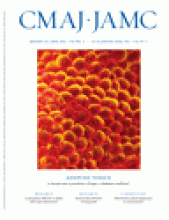- © 2008 Canadian Medical Association
It seemed a windfall to our multinational group of 8. Our grand foray to the Great Wall of China was to be interrupted by an unscheduled stop at the world-renowned Imperial Academy of Natural Chinese Medicine.

Traditional Chinese medicine is based on various belief systems. Image by: Photos.com
We were greeted warmly by a pair of attractive young women in freshly starched lab coats, ushered into a classroom, served a hot beverage made from “health giving” plants and treated to a lecture lauding Chinese traditional and natural medicine. We learned about Yin and Yang, the efficacy of acupuncture and the incomparable excellence of hospital staff.
Then, as a special gift, we “Western visitors” received a free personal examination from 2 of the academy's most renowned professors: ‚A' and ‚B'. They arrived, dapper in suits and lab coats. The 2 attractive women encouraged us to clap. Disappointed by our lack of vigour, A instructed us to clap louder.
He motioned me forward. The translator ordered me to extend my hand, palm up, on a soiled pink satin cushion. My pulse was taken, my tongue scrutinized. A asked my age and gravely inquired about my current medications. A look of disapproval crossed his face when I told him that I did not take anything.
“Very serious,” he intoned. “You have overheated liver, sluggish circulation and thick blood.”
I protested that I felt very well.
“Very serious,” the interpreter repeated. “No energy, fatigue, dry mouth and sometimes forget things.”
A sadly shook his head.
Again I protested: the weather was hot, my energy excellent, my memory good.
“Sometimes,” he implored, “the most serious of medical conditions seem like that until it is too late. You need urgent treatment.”
I explained that our bus was moving on. He urged that I “look after my health before it was too late. … Hundreds of my patients come to my hospital from North America before it is too late.”
I was clearly not a good patient.
Other tourists were summoned forward. A Mexican physician was diagnosed with “serious womb and period problems.” Also of a noncompliant bent, she was swiftly discharged, as was another Canadian physician suffering “sluggish circulation, hypertension, thick blood and developing diabetes.” He protested that he felt well and recent lab work was normal.
But a muscular, 35-year-old dental technician proved more responsive. Advised that he was “seriously ill, hypertension, sluggish circulation, and on the verge of getting diabetes,” he forked over US$300 for a football sized bag of dried herbs. He was instructed to return, “without fail,” in 3 months. He looked worried!
Footnotes
-
CMAJ invites contributions to Dispatches from the medical front, in which physicians and other health care providers offer eyewitness glimpses of medical frontiers, whether defined by location or intervention. The frequency of the section will be conditional on submissions, which must run a maximum 350 words or be subject to our ruthless editorial pencils. Forward submissions to: wayne.kondro{at}cma.ca











